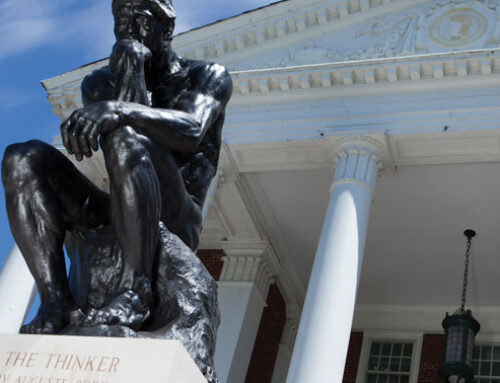By Kyeland Jackson —
A cross perched on the chapel peers across the barns and stables. Hours before the sun peeks over the twin spires of Churchill Downs, workers will rise for another day of work. They wake at 4:30 a.m., working seven days a week.
Work on the backside is physically and mentally demanding. Amid the neighs of horses and smell of manure, Christ Chapel has offered workers a haven since the 1970s.
Workers on the backside live a fast-paced lifestyle. Moving across country is the norm. Ken Boehm, the senior chaplain of the ministry, says 75 percent of those workers are either Spanish-speaking or of Hispanic descent.
Stigmas of drinking, gambling and barn work culminate into a negative stereotype of workers on the backside. Muffy Sinclair, a U of L communication adjunct professor who volunteers at the chapel, said this has led outsiders to think of the workers as “undesirables.”
“They’re assuming that everyone back here is an undocumented worker, which is not the case at all,” Boehm said. “The people back here are wonderful, hard-working people who love horses.”
Boehm has worked for 26 years as a chaplain. His last 13 years have been spent at the Churchill Downs backside chapel. He was attracted to the job after ministering in New Jersey.
“I guest preached at a church and afterwards, a man came up to me and said ‘God wants you at the racetrack,'” Boehm said. The man was Homer Tricules, an executive director for the racetrack chaplaincy of America. He offered Boehm a job in Tampa as a racetrack chaplain.
“He (Tricules) said, ‘I guarantee you this: You’re going to lead Jesus to someone, or someone to Jesus. And you’re going to make a physical difference in someone’s life.’ And that’s what I was searching for.”
Boehm accepted the job in Tampa. Thirteen years later, he moved to the backside chapel of Churchill Downs, an ‘A’ ranked racetrack.
The chapel collects food, clothing and toiletries for the workers. There’s also a dormitory next to the chapel where workers stay. Workers accustomed to life without these basics often deal without them until the chapel provides.
“Until you give someone a pair of pants and they start crying, you don’t realize how significant this is to them,” Boehm said. “If these people weren’t back here working, there’s a possibility they would be living underneath the overpass.”
Services held at the chapel are interdenominational, meaning all Christians are welcomed. To help members feel more welcome, services offer a Spanish translation and have private sermons entirely in Spanish. Children of workers are offered classes as well, encouraging stability through reading and watching movies with chapel teachers.
“What these kids need is consistency, and this chaplaincy offers that,” Boehm said.
Regardless of the transient lifestyle of workers, Boehm feels a community has been built among those in the backside of Churchill Downs. He and other chaplains pray with jockeys and their horses, take them out to baseball games and offer haircuts and programs to the people of the backside.
“In this community, every day, we have a chance to make a difference in a life.”
Photo courtesy / The Record Newspaper





